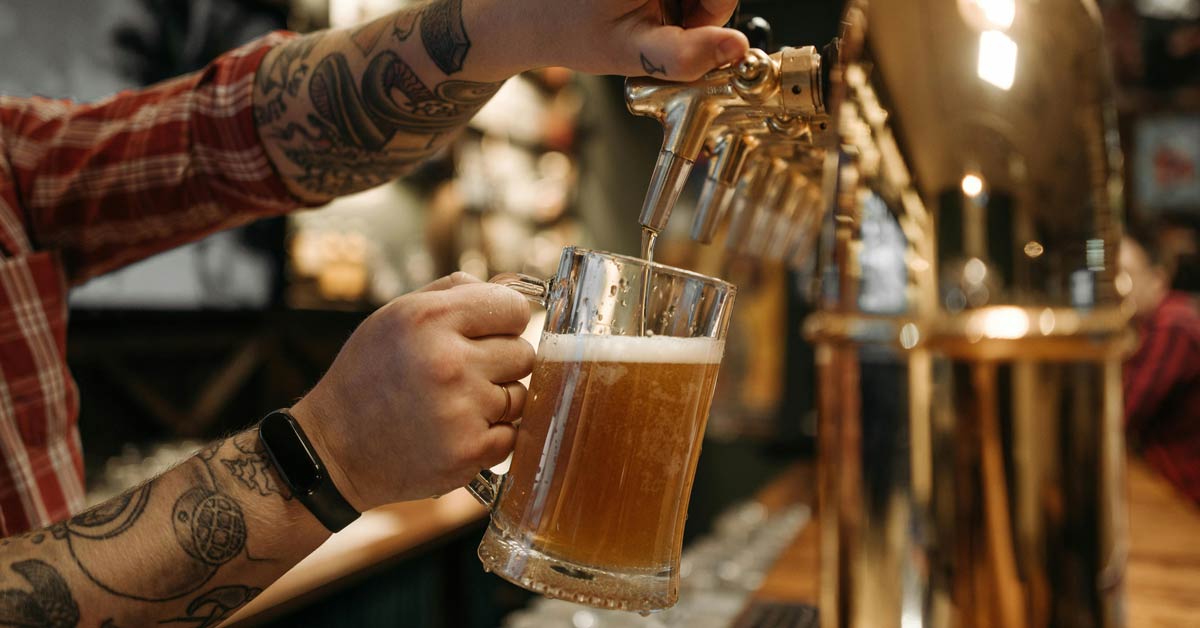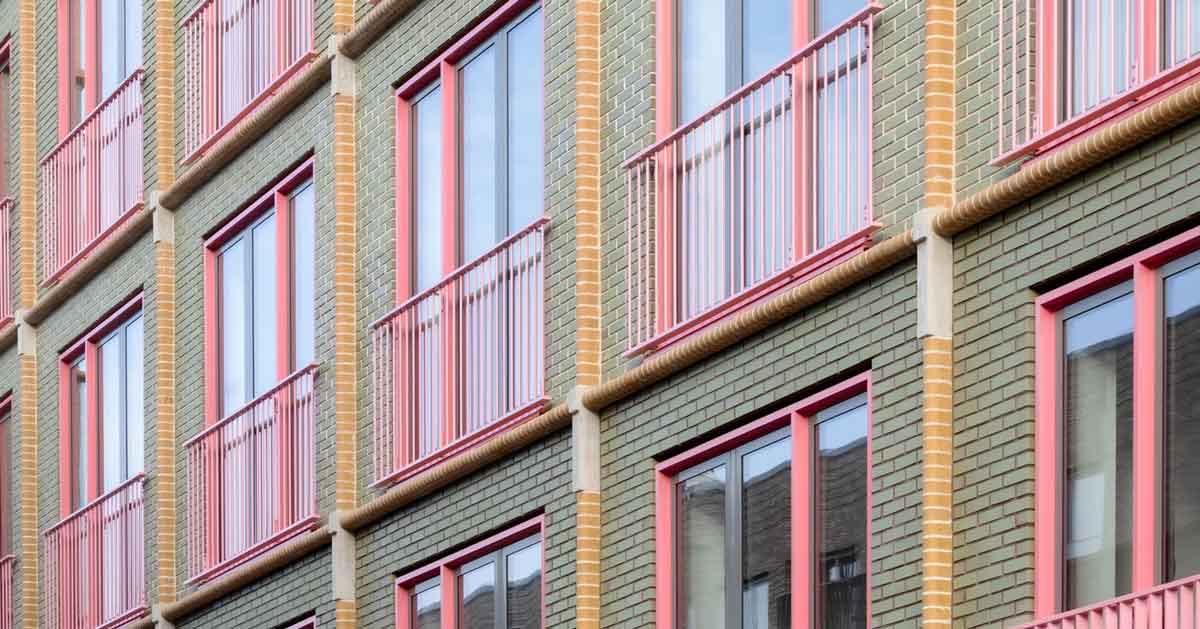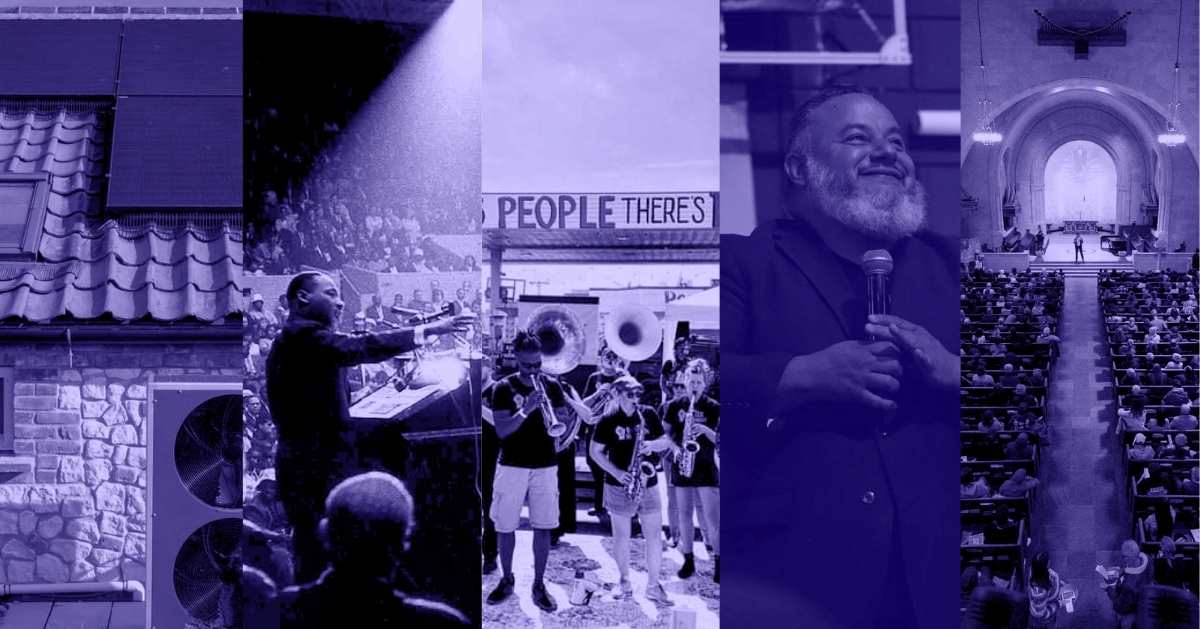Studies show that approximately a third of people experiencing homelessness — 38% — also have alcohol abuse disorders.
But at The Oaks, a homeless shelter owned by Shepherds of Good Hope in Ottawa, Ontario, quitting cold turkey isn’t always the way to bring that number down.
“Generally speaking, people who live here have experienced chronic homelessness and have struggled with alcoholism most of their lives,” Adrienne Sesiakin, the senior manager at the shelter, said in a video for Invisible People, a nonprofit newsroom that reports stories about homelessness.
“When they live here, they’re prescribed a pour.”
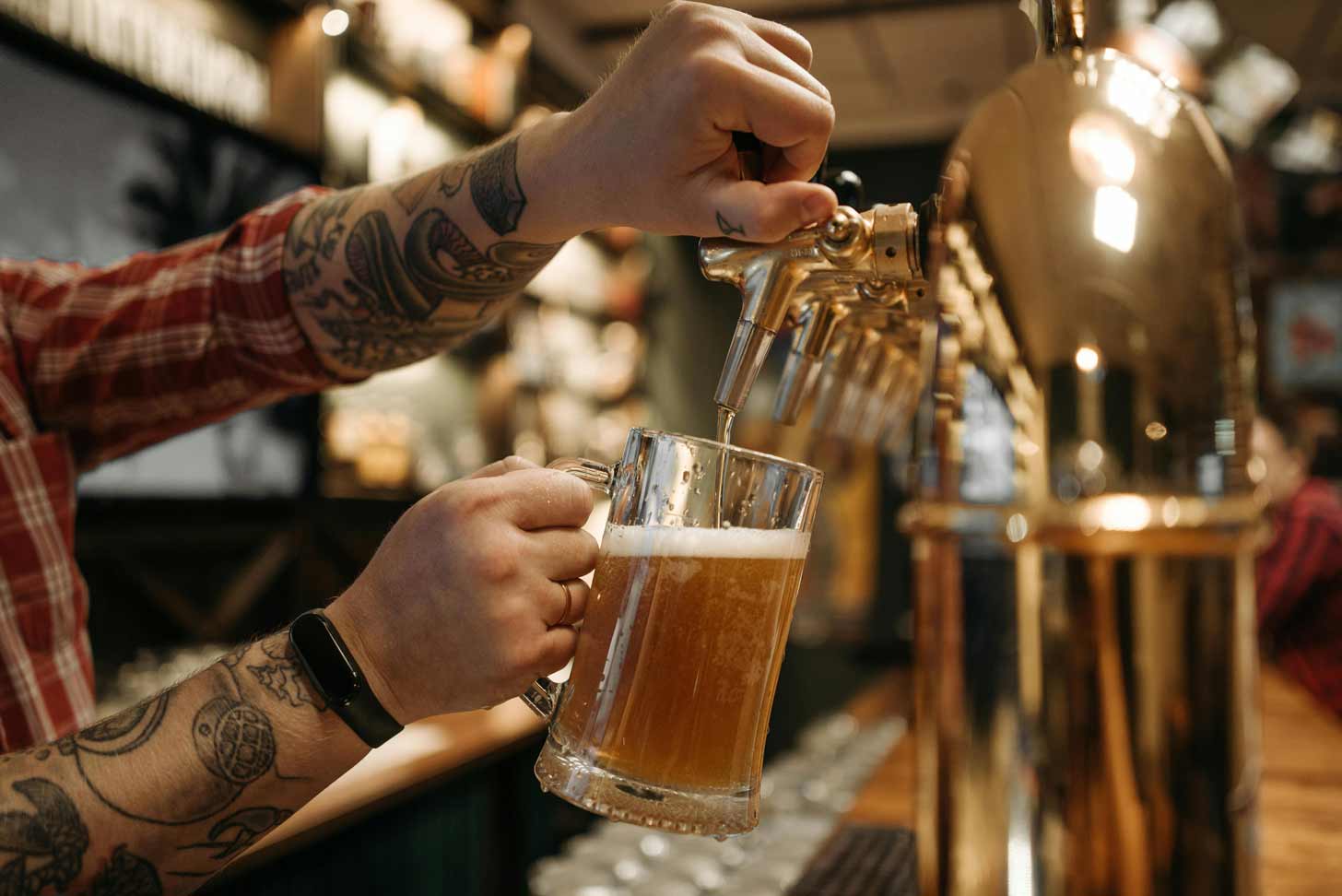
It’s part of the Managed Alcohol Program, or MAP, at The Oaks. MAP is a harm-reduction program operated in partnership with Ottawa Inner City Health Inc., in which residents stabilize their alcoholism through “a medically regulated administration of alcohol,” a webpage for the shelter reads.
“An average pour at The Oaks would be seven ounces first thing in the morning and five ounces thereafter every hour, on the half hour,” Christal Brownlee, the shelter’s program manager, said in the Invisible People video.
“But those pours can change, depending on the individual we’re servicing.”
Most of the time, the pours consist of white wine. If that’s not available, residents get an equivalent serving of beer.
“Everybody has a different prescription,” Madison Burke, the assistant manager of community development, added. “We don't do a one-size-fits-all model.”
Every morning, residents bring their respective mugs to a distribution point where they check in with staff, who assess them to ensure that they are stable and served within their limits.
“At The Oaks, participants receive a medically prescribed dosage of wine, every hour, for fifteen hours a day,” the organization’s website explains.
“These structured servings significantly reduce the amount of alcohol consumed at any one time, enabling the participant to remain stable and address their addiction. As a result, many residents also drastically reduce their overall consumption of alcohol, or refrain from consuming alcohol completely.”
By giving participants a structured program where they can stabilize and gain a sense of dignity and community, The Oaks is saving lives.
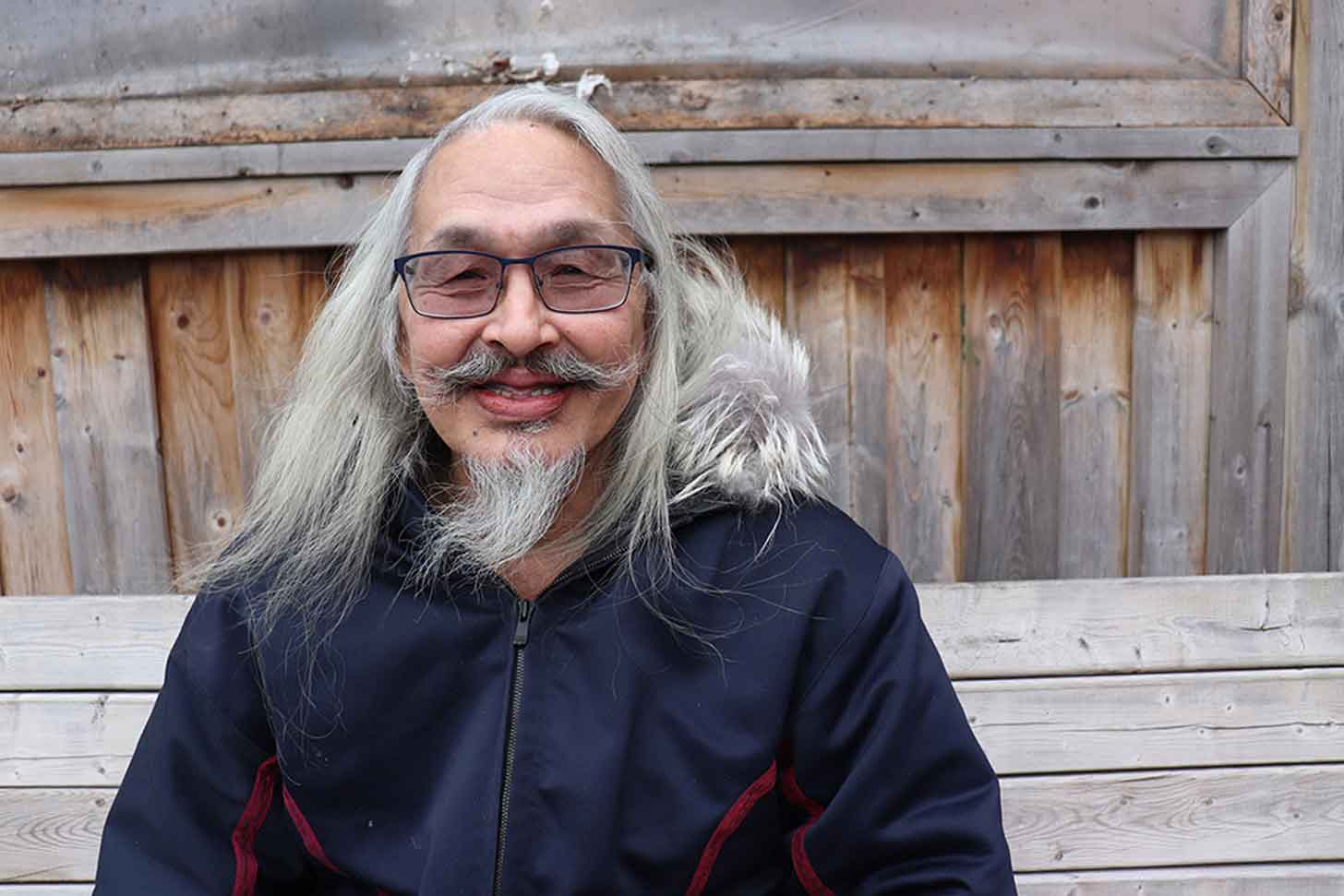
“It took me a few years to balance my drinking here,” one resident, Sim, told Invisible People. “I didn’t know I could drink and not get drunk. That was a new revelation for me.”
After bouncing from homeless shelter to homeless shelter for about 17 years, Sim said this harm reduction model actually works for him.
“Many shelter and housing programs exist under an abstinence-based model, and that's just not a realistic model for many people experiencing chronic homelessness,” senior manager Sesiakin said.
“We believe that people can and should receive housing no matter what their life circumstances or their substance use health problems,” she added. “They're more likely to become stabilized and have a healthier relationship with alcohol if they're at home and they're being supported.”
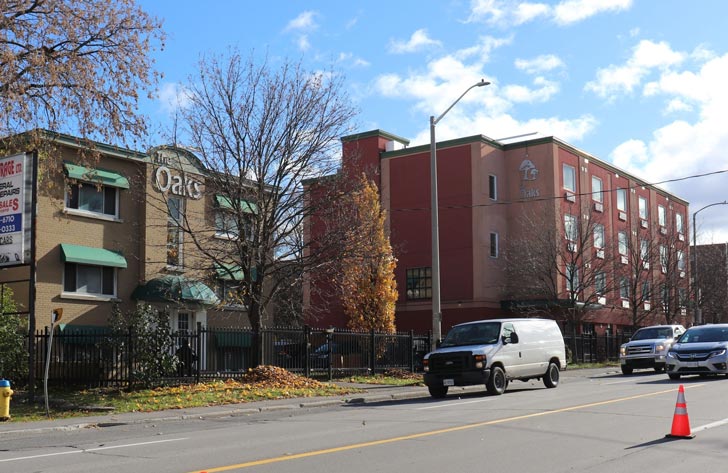
At the shelter, The Oaks has about 55 beds. Once individuals meet a threshold for their recovery, they graduate into a permanent supportive housing facility, where they have access to ongoing support, like medical and mental health services, tailored case management, life-skills training, and everything else to meet their personal needs.
The program has been offered at The Oaks for years now, after the shelter first opened in 2010. People of all ages come to the shelter for help, both men and women, though many of the residents are older individuals or from Indigenous backgrounds. Nearly all of them have failed out of any other abstinence-based program.
“Harm reduction is imperative,” Brownlee said. “Not everybody needs managed alcohol. Some individuals … will use an abstinence-based program. Some people will go to 12 Step, and they'll be very successful, and that's wonderful.
“But there are a percentage of people who require additional support,” she continued. “Some individuals, they want to stop drinking, but you have to meet them where they're at when they're ready to stop so they can be successful.”
Those who have found success and graduated to the permanent housing program tend to stay there until they die.
“The fact that they would choose to die here, rather than anywhere else, that says a lot,” Ray Macquatt, The Oaks’ former program manager, told Nunatsiaq News in 2019. “This is their home.”
For younger folks, The Oaks gives them a future. And for those who choose to live out their days in the permanent housing facility — which they do pay a little over $50 a day to reside in — The Oaks gives them a happier, healthier present.
“I know that it can be very controversial that we’re giving alcoholics alcohol, but … the alternative for some of these individuals is quite literally death alone on the streets,” Sesiakin said.
“Without a managed alcohol program, they would be feeding their addiction their own way. At least here, they're followed by a doctor. Their vitals are monitored, they have a sense of community, they have people who care for them. It's a much, much more beautiful life than the alternative.”
And for many, it is this hope — without shame or blame — that finally leads to success.
“I actually have been to 27 rehab centers in the last 10 years … and this has been the only program where I felt stable, and safe, and committed to the result,” one resident, Matthew, said in the Invisible People video.
When asked how much alcohol he was consuming right now, another resident, John, said: “Zero.”
“Sobriety was my goal, so I'm lucky to be here,” he said. “If I hadn't got into managed alcohol program, I would've been in a very bad way. The managed alcohol program saved my life.”
Header image courtesy of Pavel Danilyuk/Pexels
